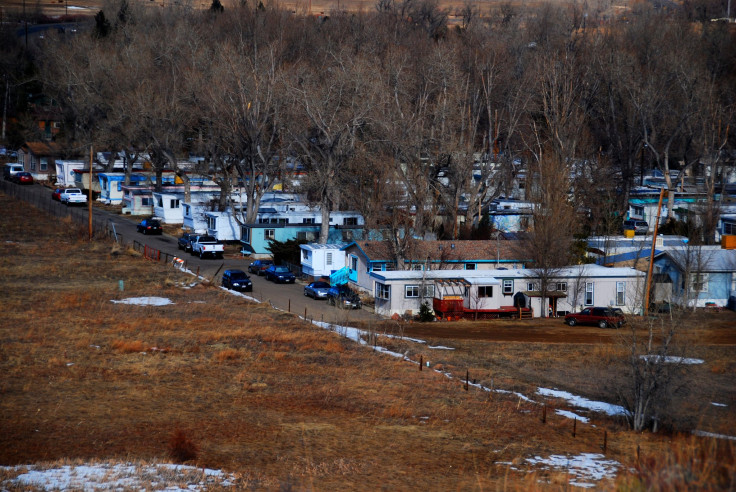
Latino residents of mobile home parks in Ohio and Colorado have filed lawsuits and complaints over poor living conditions and alleged discriminatory practices by park management. Residents claim violations of state laws, including poor maintenance, unfair rent increases, and discriminatory conduct.
Mobile home parks have become increasingly popular among low-income families, especially Latino immigrants, as they offer more affordable housing options. About 1.32 million of the 7.22 million mobile home residents in the U.S. — or 18% — identify as Hispanic, according to the Department of Housing and Urban Development's 2023 American Housing Survey.
In 2021, over 20% of manufactured home owners earned less than $20,000 annually, and more than half earned under $50,000, according to the Private Equity Stakeholder Project (PESP), a nonprofit that tracks the manufactured home market.
While residents can purchase their homes, they often must rent the land beneath them, typically in areas known as mobile home parks - although the term "mobile" is misleading, as most of these homes cannot be easily relocated.
In Lake County, Ohio, Mariano Jacobo Piñón, a resident of Fairgrounds United Mobile Home Park, described how his home was damaged after a tree fell during a hurricane. Piñón had repeatedly alerted park managers to the hazardous condition of the tree, but his concerns went unaddressed, NBC News reported. At nearby Perry Mobile Home Park, another resident also raised concerns about snow removal and sewage issues, which he says endanger residents, particularly children.
In response to these conditions, Ohio residents filed a lawsuit against the companies that own the two parks. The lawsuit alleges that the management companies violated state law by failing to provide written lease agreements, increasing costs unfairly, neglecting park maintenance, and creating a hostile environment for residents. Many of the plaintiffs, including undocumented immigrants, say they are fighting for their rights despite fear of eviction.
While the legal battle continues, some aspects of the case have already been addressed in court. In August, a judge ruled that the owners did indeed provide a one-year lease, dismissing one claim. However, other allegations, including excessive charges for utilities and claims of discrimination, are set to go to trial in December.
"The rents have gone up in these properties, the bills have gone up, and the maintenance is very bad. The sewage is exposed to the air and causes a lot of nausea and headaches," Veronica Isabel Dahlberg, executive director of HOLA Ohio, a nonprofit group assisting Latino state residents, said to the outlet.
Meanwhile, in Colorado, residents of Foxridge Farm Mobile Home Park have filed complaints about arbitrary parking policies and rising rent. A state investigation found several violations at the park, but the case is still pending in court.
In August, Lake County Common Pleas Judge Patrick J. Condon ruled that Jones Estates had provide tenants with a one-year lease, so that claim will not be pursued at trial.
However, the court determined there are unresolved issues regarding the charges for water and sewage services, noting that these charges may be excessive. This allegation will proceed to trial.
Additionally, complaints about the lack of response to requests from Latino residents and accusations of discrimination will also be addressed in court, the judge confirmed. Hearings for the lawsuit are scheduled to begin in early December.
Neighbor complaints led to an inspection by the Colorado Mobile Home Oversight Program earlier this year. The inspection found that Ascentia, the company that owns the park, had violated multiple state laws. Ascentia has appealed the findings, and the dispute is now ongoing in administrative court.
© 2025 Latin Times. All rights reserved. Do not reproduce without permission.



